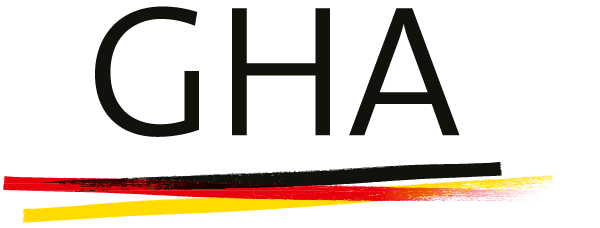GHA – German Health Alliance with strong, active participation in WHS 2020
The three-day World Health Summit (WHS) on 25-27 October focused on current knowledge on Covid-19, global strategies for pandemic prevention and control, and the role of Europe and the World Health Organization (WHO) in global health.
A total of more than 6,000 scientists, politicians and physicians from over 100 different nations have virtually participated in the WHS, which has been held annually since 2009 and in which the GHA – German Health Alliance, as a partner of the WHS, has been involved in terms of content since 2014.
In his opening video message, Federal President Dr. Frank Walter Steinmeier called on the community of states to cooperate, especially with regard to vaccines. The pandemic must be overcome with a spirit of cooperation, he said.
Professor Dr. Detlev Ganten, President and Founder of the World Health Summit, joined in his opening remarks by calling for international solidarity: Only through close cooperation is it possible to improve global health. Moreover, according to Professor Ganten, “health is wealth”.
WHO Director-General Dr. Tedros Adhanom Ghebreyesus emphasized in the closing session that strengthening cooperation with WHO partners was one of his top priorities. Cooperation and innovation are the key factors to help countries overcome the Covid 19 pandemic and accelerate progress towards the Sustainable Development Goals (SDGs) of the United Nations’ Agenda 2030.
The panel discussion “Strong Partnerships as a Determinant of Health – Bridging the Public, Private and Political Powers to Accelerate the Attainment of the 2030 SDGs”, organized by the GHA – German Health Alliance together with the global network of parliamentarians UNITE and UNAIDS in the framework of the World Health Summit, deepened these central issues.
“Resilient health systems are the key to successful pandemic prevention and control and are also an indispensable prerequisite for general economic and political stability and for any sustainable positive socio-economic development,” emphasized Roland Göhde, GHA CEO.
When it came to the acceleration needed to achieve health-related SDGs, innovation, especially in the field of digital health, bridging innovation to implementation and strong partnerships as well as transsectoral and interdisciplinary cooperation played a key role.
As a concrete example, the GHA’s close partnership and cooperation with UNITE and UNAIDS should be highlighted. With its more than 100 members from the private sector, academia, NGOs, foundations and civil society, the multi-sectoral GHA itself can also be regarded as such a partnership, Göhde continued.
“Health must be seen as a global public investment and therefore requires global solidarity and global solutions. Health is more than a political decision. Health is a political imperative that must be shaped as a clear, consistent ‘Health in All Policies’ strategy that is constantly at the top of the political agenda,” Göhde’s core message. Political leadership, commitment and action are therefore essential to bring about the necessary transformative improvements in health systems.
In close partnership with the World Health Summit, GHA had organized the 3rd German-East European & CIS Health Forum on October 23 together with the Ost-Ausschuss der Deutschen Wirtschaft e.V. and the 7th German-African Healthcare Forum together with the Afrika-Verein der deutschen Wirtschaft e.V. on October 28 as side events to the WHS.
The World Health Summit is an excellent and absolutely necessary platform – especially for interdisciplinary exchange, which creates strong, sustainable partnerships – the importance and significance of which has never been greater than this year’s coronavirus pandemic.

